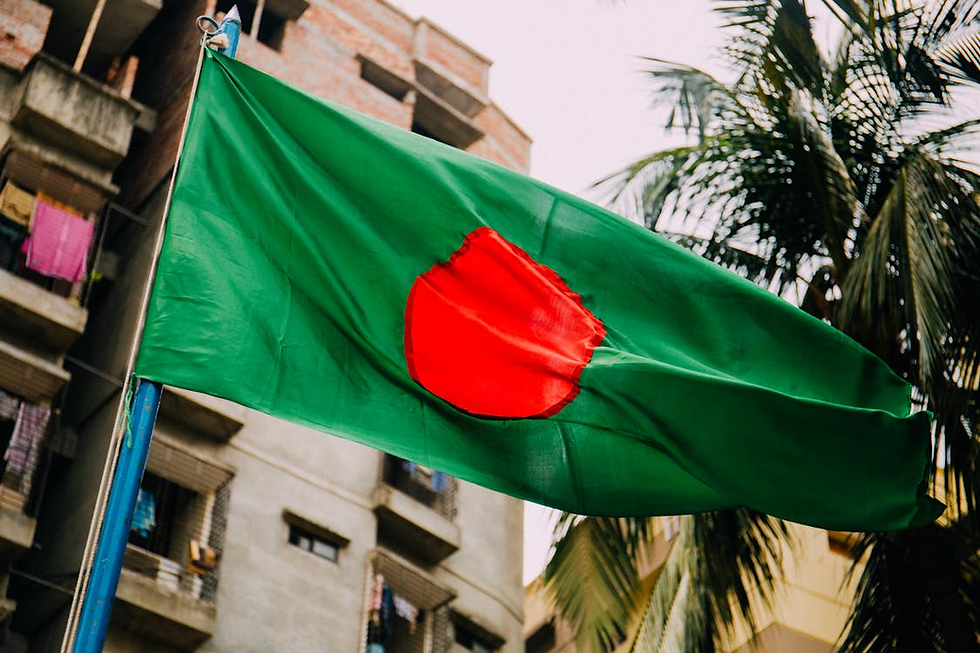Iranian Journalist Ruhollah Zam Executed
- Sagar R
- Dec 13, 2020
- 3 min read
Updated: Dec 23, 2024
Dissident Iranian journalist Ruhollah Zam was executed on Saturday for his role in sparking nationwide anti-government protests in 2017. State TV announced on 12th December: "Ruhollah Zam, director of the counter-revolutionary Amadnews network, was hanged this morning”.

Ruhollah Zam, was earlier sentenced to death by a court after he was found guilty of “corruption on earth” — a charge that is often invoked for cases that involve espionage or an attempt to overthrow the Iranian government.
Ruhollah Zam, 47 year old journalist and activist, was well known for operating Telegram channel "Amad News" which he founded in 2015, he played a pivotal role in the 2017 anti-government protests. Zam was born into a clerical family, his father worked for the Iranian government during the 80's, according to a letter published by local media in July 2017 his father did not support Sam's journalism and was against the messages being broadcasted through his telegram channel.
Zam, a father of two, was first arrested in 2009 as he turned against the establishment after a disputed presidential election. He was imprisoned in Evin prison, and later sought asylum in France, where he lived.
On October 14 2019, Iran's revolutionary guards announced that they had managed to find Zam and bring him back to Tehran for further process of his trials. Zam was sentenced to death on June 30 2020, after a court found him guilty of espionage charges.
Zam's Telegram channel is believed to have been one of the most influential media platforms during the 2017 protests. His channel provided protesters with constant updates about demonstration locations, and constantly shared anti-government content to his 1 million+ followers. The demonstrations were mainly focused on a failing economy and inflation, in which around 5000 protestors were detained and 27 people were estimated to have been killed.
According to local reports, the 2017 protests were by far the biggest challenge faced by the Iranian establishment since the 2009 demonstrations. The Iranian authorities managed to get Zam's Telegram channel suspended by accusing him of teaching protestors how to make petrol bombs- an allegation that Zam has denied. However, Zam's news channel returned with a different name. Although Zam was being targeted by the establishment, it is believed that Iranian President Hassan Rouhani and even Supreme Leader Ayatollah Ali Khamenei were put under significant pressure by Zam's activities on Telegram.
Zam was taken to trial after he was arrested, and was consequently brought back to Tehran. Here, he was accused of destroying property and evidence, interfering in Iran's economy, conspiring with the US National Intelligence Agency, and spying on behalf of the French intelligence. Authorities alleged that the journalist was in close contact with the US National Intelligence Agency and a number of other foreign intelligence agencies.
“This individual committed criminal and corrupt acts against the security and livelihoods of the Iranian people through running the antagonist AmadNews Telegram channel and espionage communication with elements linked with foreign services that are against the Iranian people’s security,” an article in Mizan, the official news website of Iran’s judiciary, read.
The supreme court upheld the decision of execution despite facing heavy backlash from several human rights groups from across the world. According to press advocacy group Reporters Without Borders, Iran has been “one of the world’s most repressive countries for journalists for the past 40 years.” At least 860 journalists have been arrested or executed in the country since 1979.
Amnesty International called Zam's death "a deadly blow to freedom of expression." The group said in a statment: “We call on the international community, including member states of the UN Human Rights Council and the EU, to take immediate action to pressure the Iranian authorities to halt their escalating use of the death penalty as a weapon of political repression."
French authorities also condemned the execution and said: "France condemns in the strongest possible terms this serious breach of free expression and press freedom in Iran. This is a barbaric and unacceptable act that goes against the country’s international commitments."

_edited.png)



Comments